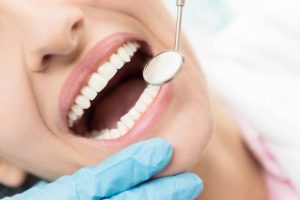In the hustle and bustle of daily life, dental emergencies can strike unexpectedly, leaving you in excruciating pain and desperate for immediate relief. Whether it’s a sudden toothache, a broken tooth, or any other dental mishap, knowing where to turn for prompt care is crucial. In Adelaide, a city known for its rich culture and picturesque landscapes, finding an emergency dentist can be a saving grace in such dire situations. For an emergency dentist for dental trauma, click here.
 What Constitutes a Dental Emergency?
What Constitutes a Dental Emergency?
Before delving into the options available for emergency dental care in Adelaide, it’s essential to understand what constitutes a dental emergency. While some dental concerns can wait for a scheduled appointment, others require urgent attention. Common dental emergencies include:
- Severe Toothache: Persistent and severe toothaches can indicate an underlying infection or damage that needs immediate treatment.
- Knocked-Out Tooth: If a tooth is knocked out due to trauma or wound, quick action can sometimes save the tooth.
- Broken or Chipped Tooth: Fractured or chipped teeth can direct to pain and discomfort, especially if the nerve is exposed.
- Lost Filling or Crown: A lost filling or crown can expose sensitive tooth tissue, leading to pain and an increased risk of further damage.
- Abscess or Swelling: Swelling in the gums or face, accompanied by pus, can indicate a dental abscess or a severe infection requiring immediate attention.
Finding an Emergency Dentist in Adelaide
When faced with a dental emergency, time is of the quintessence. Knowing where to find an emergency dentist in Adelaide can alleviate stress and ensure timely treatment. Here are some avenues to explore:
- Local Dental Clinics: Many dental clinics in Adelaide offer emergency services or have provisions for accommodating urgent cases during their regular hours. A sudden search online or a phone call to nearby clinics can help you identify those who provide emergency dental care. For an emergency dentist for dental trauma, click here.
- 24/7 Emergency Dental Services: Several dental practices specialise in emergency dentistry, offering round-the-clock services to address urgent dental needs. These practices often have dedicated hotlines or online booking systems for immediate assistance.
- Online Directories: Utilising online directories specific to emergency dental services can streamline your search process. These directories list emergency dentists in Adelaide along with their contact information and available services, making it easier to find help when you need it most.
- Referrals from Friends or Family: Seeking endorsements from friends, family, or acquaintances who have formerly dealt with dental emergencies can provide valuable insights. They can recommend reliable dentists in Adelaide who offer prompt and effective care during emergencies.
Choosing the Right Emergency Dentist
While urgency may be the primary concern during a dental emergency, it’s essential to choose a dentist who can offer quality care tailored to your needs. Consider the following features when selecting an emergency dentist in Adelaide:
- Experience and Expertise: Look for a dentist with extensive experience in handling dental emergencies and a track record of successful treatments. Specialised training in emergency dentistry can also be advantageous.
- Accessibility: Opt for a dental practice that offers convenient accessibility, especially during after-hours or weekends. Proximity to your location and ease of transportation can ensure timely arrival for emergency appointments.
- Comprehensive Services: Select a dentist who offers a wide range of emergency dental services, including treatments for various dental issues such as toothaches, trauma, and infections. This ensures that all your emergency dental needs can be addressed in one place.
- Emergency Protocols: Inquire about the practice’s emergency protocols and procedures, including how they handle urgent cases, response times, and availability of on-call dentists. A well-defined emergency plan indicates preparedness and commitment to patient care. For an emergency dentist for dental trauma, click here.
- Patient Comfort: Dental emergencies can be challenging and painful, so prioritise a dentist who prioritises patient comfort and provides compassionate care. A welcoming environment and empathetic staff can ease anxiety and enhance the overall experience.
Conclusion:
A dental emergency can occur when least predicted, causing significant discomfort and distress. However, knowing where to find an emergency dentist in Adelaide can provide peace of mind and ensure prompt relief when every second counts. By exploring local dental clinics, emergency dental services, online directories, and personal referrals, you can locate a trusted dentist equipped to handle your urgent dental needs with professionalism and efficiency.

 If you’re experiencing pain in your jaw, you need to see a dentist immediately. The condition can lead to further complications if left untreated. Pain in the jaw can affect your daily life and your ability to chew food. The pain can be constant or intermittent, and the misalignment of your jaw bones may cause it. See a dentist if the pain limits your ability to perform everyday activities.
If you’re experiencing pain in your jaw, you need to see a dentist immediately. The condition can lead to further complications if left untreated. Pain in the jaw can affect your daily life and your ability to chew food. The pain can be constant or intermittent, and the misalignment of your jaw bones may cause it. See a dentist if the pain limits your ability to perform everyday activities.